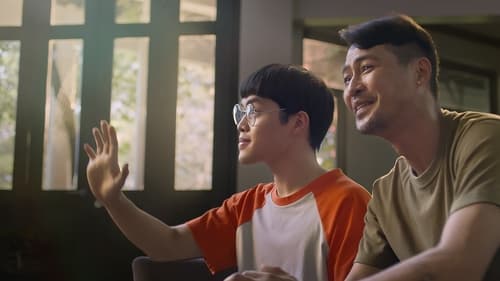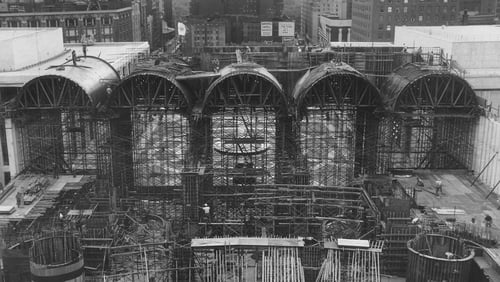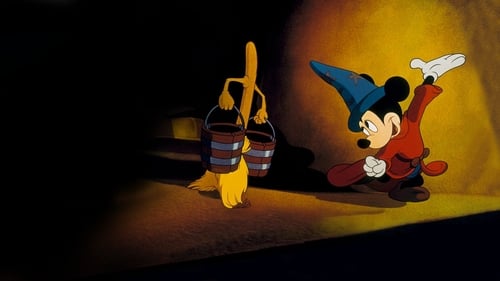Modeste Moussorgsky
出生 : 1839-03-21, Karevo, Pskov Governorate, Russian Empire [now Russia]
死亡 : 1881-03-28

Music
Troubled and alone, a boxer moves in with his long-lost mother and autistic pianist brother — but must fit in with a family he hasn't known for years.

Music
In this documentary, award-winning filmmaker Susan Froemke explores the creation of the Metropolitan Opera’s storied home of the last five decades. Drawing on rarely seen archival footage, stills, and recent interviews, The Opera House looks at an important period of the Met’s history and delves into some of the untold stories of the artists, architects, and politicians who shaped the cultural life of New York City in the ’50s and ’60s. Among the notable figures in the film are famed soprano Leontyne Price, who opened the new Met in 1966 in Samuel Barber’s Antony and Cleopatra; Rudolf Bing, the Met’s imperious General Manager who engineered the move from the old house to the new one; Robert Moses, the unstoppable city planner who bulldozed an entire neighborhood to make room for Lincoln Center; and Wallace Harrison, whose quest for architectural glory was never fully realized.

Writer
Kent Nagano superbly masters the challenges presented by this score, shapes the dynamics with subtle intensity, and casts the score in a mellow glow. As Marfa, the spurned lover of Ivan Khovansky‘s son Andrei, Doris Soffel unfolds such a rich palette of sonorities, from the pathos of the lower ranges to shaded discant heights, that “one is tempted to speak of a Russian mezzo”. The final chorus, which Mussorgsky did not compose, is played in the orchestrally transparent version of Igor Stravinsky – the third great Russian composer who contributed to making “Khovanshchina“ a timeless, gripping stage work. With his stripped-down sets and historicising costumes, director Dmitri Tcherniakov, one of the new voices of contemporary Russian theatre, builds a bridge to the political present. A lesson in history and music!

Music
Kent Nagano superbly masters the challenges presented by this score, shapes the dynamics with subtle intensity, and casts the score in a mellow glow. As Marfa, the spurned lover of Ivan Khovansky‘s son Andrei, Doris Soffel unfolds such a rich palette of sonorities, from the pathos of the lower ranges to shaded discant heights, that “one is tempted to speak of a Russian mezzo”. The final chorus, which Mussorgsky did not compose, is played in the orchestrally transparent version of Igor Stravinsky – the third great Russian composer who contributed to making “Khovanshchina“ a timeless, gripping stage work. With his stripped-down sets and historicising costumes, director Dmitri Tcherniakov, one of the new voices of contemporary Russian theatre, builds a bridge to the political present. A lesson in history and music!

Original Concept
A one-off production of Boris Godunov was staged by Andrei Konchalovsky at the Teatro Regio in Torino in 2010, with Orlin Anastassov in the leading role and Gianandrea Noseda conducting the Orchestra del Teatro Regio.

Music
A one-off production of Boris Godunov was staged by Andrei Konchalovsky at the Teatro Regio in Torino in 2010, with Orlin Anastassov in the leading role and Gianandrea Noseda conducting the Orchestra del Teatro Regio.

Writer
The libretto is by Mussorgsky himself and takes the eponymous “romantic tragedy” by the celebrated Russian poet Alexander Pushkin as its starting point. Boris Godunov is Mussorgsky’s masterpiece and his only complete opera. It’s a vast sprawling tapestry of Russian life, which centres on the Russian people – represented in the opera by a large and powerful chorus – rather than on the title figure. The staging was produced at the Gran Teatre del Liceu in Barcelona and is based on the original version of the score.

Original Music Composer
The libretto is by Mussorgsky himself and takes the eponymous “romantic tragedy” by the celebrated Russian poet Alexander Pushkin as its starting point. Boris Godunov is Mussorgsky’s masterpiece and his only complete opera. It’s a vast sprawling tapestry of Russian life, which centres on the Russian people – represented in the opera by a large and powerful chorus – rather than on the title figure. The staging was produced at the Gran Teatre del Liceu in Barcelona and is based on the original version of the score.

Writer
Modest Mussorgsky's opera in prologue and four acts is performed by the Kirov Opera with performances from Olga Borodina, Alexei Steblianko and Sergei Leiferkust. Boris Godunov has obtained the throne of Russia by murdering the rightful heir Dmitry. An old monk, Pimen, witnessed this, and convinces his apprentice Grigory to avenge Dmitry's death. In the following years Grigory poses as Dmitry, raising an army against Boris, who is now convinced that he is being punished for the murder. Filmed in Russia during the collapse of the Soviet Union, this particular production of Mussorgsky's 1872 tale of political upheaval is considered a highly unique and historical moment in opera. Robert Lloyd stars in the title role of Boris Godunov.

Writer
Mussorgsky's quintessential Russian opera is captured live on stage in this performance by the Bolshoi Opera featuring Rimsky-Korsakov's revised vision and starring Evgeny Nesternko and Vladislav Piavko.

Writer
Universally acknowledged as the greatest of all Russian operas, this is a faithful and often dazzling production of the standard Rimsky-Korsakov version taped live at the Bolshoi in 1978. As Boris, the renowned Yevgeni Neterenko is as justifiably identified with the role in his generation as Chaliapin, London and Kipness were in theirs. Nesterenko gives a remarkably vivid, human portrait of the tormented half-crazed Tsar, and is supported by a first rate ensemble in a richly designed and costumed production that represents opera at its grandest. Particularly outstanding are Vladislav Piavko as the Pretender, Valery Yaroslavtsev as Pimen, Irina Arkhipova as Marina (a role generally associated with Vishnevskaya), Galina Kalinina as Xenia, and Alexsei Maslennikov as the Simpleton.

Original Music Composer
A medieval tale with Pythonesque humour: After the death of his father the young Dennis Cooper goes to town where he has to pass several adventures. The town and the whole kingdom is threatened by a terrible monster called 'Jabberwocky'. Will Dennis make his fortune? Is anyone brave enough to defeat the monster?

Music
ウォルト・ディズニーが世に贈った数々の長編アニメーション映画の中でも、特に傑作として語り継がれている『ファンタジア』。クラシック・ミュージックの華麗な旋律とめくるめく色彩、そしてダイナミックで時として繊細、優美なモーションの融合は、アニメーション史のみならず映画史上、類を見ない作品として、公開以来つねに人々を魅了し続けてきました。組曲「くるみ割り人形」にのせて繰り広げられる愛らしいマッシュルームのチャイニーズ・ダンス、軽やかに舞うカバのバレリーナとワニたち、「魔法使いの弟子」に扮した人気者ミッキーマウスも夜空の星たちを指揮して大熱演…。画面いっぱいにあふれる夢とファンタジーは、時代を超え色褪せることなく輝き続ける宝石。最新のテクノロジーにより甦った色彩とサウンドが、いま新たなる感動とセンセーションを呼び起こします。












